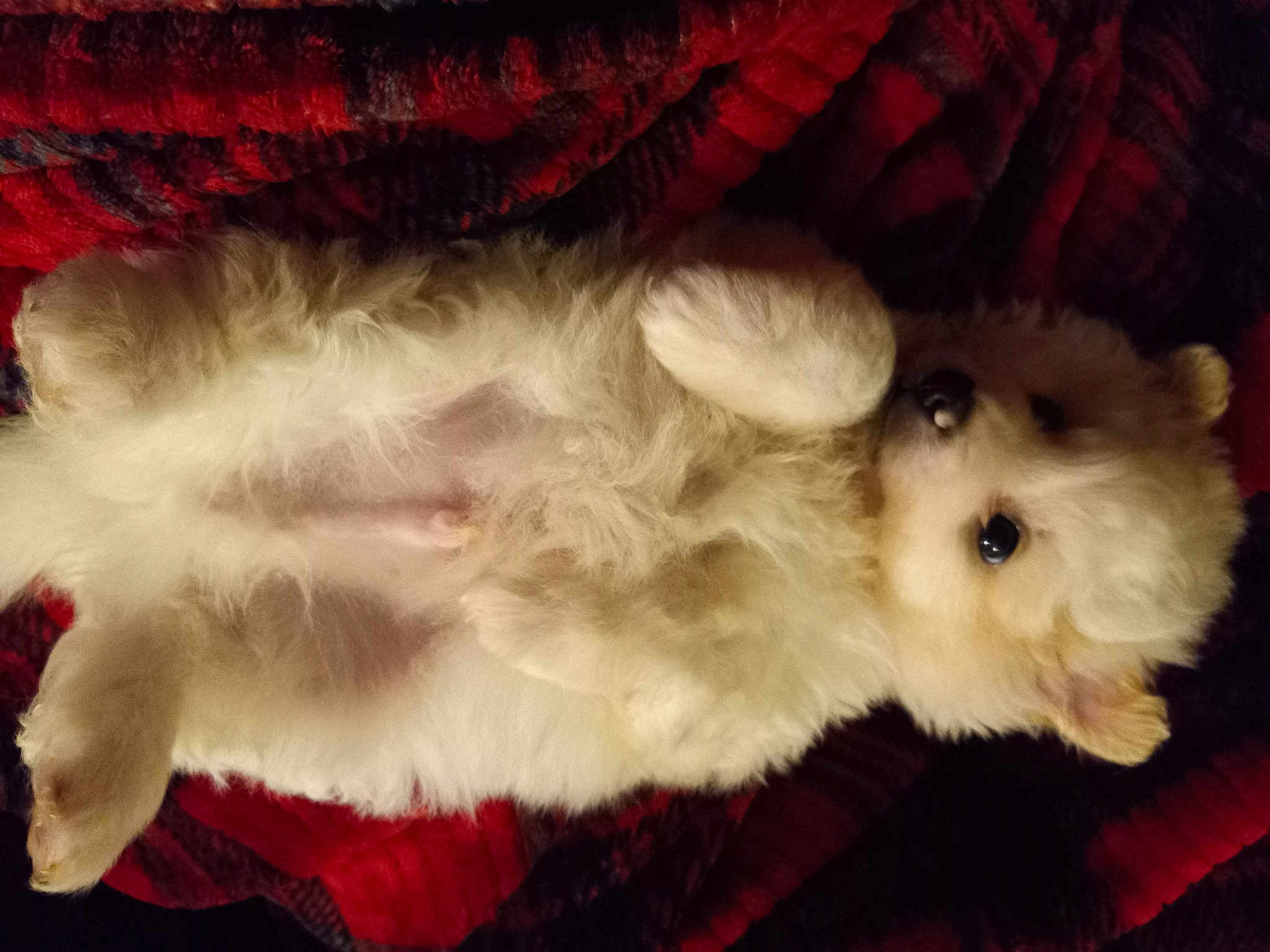
The Japanese Spitz: The Cloud-Like Companion You Didn’t Know You Needed
Did you know that the Japanese Spitz, with its luxurious white coat, is often described as resembling a little cloud? This captivating breed is gaining popularity worldwide due to its charming personality and striking appearance.
Personality and Behavior of the Japanese Spitz
The Japanese Spitz is known for its friendly and affectionate nature. These dogs form strong bonds with their families and are incredibly loyal. Despite their small size, their courageousness can't be understated; they are often very protective of their loved ones. Their alertness and keen senses also make them excellent watchdogs.
Another endearing trait of the Japanese Spitz is their playful demeanor. They have a lot of energy and love to engage in fun activities, whether it's a game of fetch, a playful chase, or a simple walk in the park. Their exuberant and joyful personality often brings a smile to everyone they meet.
Perhaps one of the most significant aspects of the Japanese Spitz's personality is their intelligence. These dogs are quick learners and thrive on positive reinforcement. They enjoy mental challenges and puzzles, which can keep them stimulated and happy. Their keen mind, combined with their eager-to-please attitude, makes them relatively easy to train compared to some other breeds.
Overall, the Japanese Spitz's cheerful disposition and adaptable nature make them a great addition to families of all shapes and sizes. Whether you live in a small apartment or a large house, this breed will likely fit in perfectly and become a beloved family member.
Despite their majestic and pristine appearance, Japanese Spitz dogs are known for being low-maintenance when it comes to grooming, thanks to their dirt-resistant coat!
Meanings, History and Origins of the name Japanese Spitz
The name "Japanese Spitz" directly references the breed's origin: Japan. The Japanese Spitz descends from various European Spitz breeds that were brought to Japan in the early 20th century. Breeders aimed to create a smaller companion dog without losing the desirable traits of Spitz breeds, such as their thick, fluffy coats and friendly dispositions.
Over time, the breed was refined to enhance its charming characteristics, leading to the creation of the Japanese Spitz as we know it today. This breed was officially recognized in Japan in the 1940s, and it started to gain international recognition in the decades that followed.
The term "Spitz" refers to a type of dog characterized by a wolf-like appearance, including a pointed muzzle, erect ears, and a thick, double-layered coat. These dogs were originally bred in colder climates, which explains their dense, insulating fur. The Japanese Spitz inherited these physical traits, providing it with a distinctive and captivating look.
Interestingly, the Japanese Spitz has a rich cultural significance in Japan. They are often seen as symbols of loyalty and protection, reflecting the breed's strong bond with its human family and its readiness to protect them from harm.
Popularity of the Japanese Spitz
The Japanese Spitz enjoys a moderate level of popularity globally, with a growing number of admirers each year. In Japan, they are a well-loved breed, often seen in urban and rural settings alike due to their versatility and adaptability.
In English-speaking countries, the Japanese Spitz has seen a surge in popularity in recent years. Many dog owners are drawn to their striking appearance and the combination of traits that make them wonderful companions. The breed's friendly and sociable nature makes it particularly popular among families, singles, and elderly people alike.
Worldwide, the breed's recognition has been steadily increasing. Countries like the UK, Australia, and Canada have noted a rise in the number of Japanese Spitzes being registered and owned. Dog shows and contests also feature this breed more frequently, highlighting its elegance and well-rounded temperament.
In some parts of Asia, outside Japan, the Japanese Spitz is becoming increasingly popular as well. They are often viewed as status symbols partly due to their pure white coat and manicured appearance. The rising trend of pet ownership in various Asian countries has further contributed to the breed's ascending popularity.
Health and Care of the Japanese Spitz
One of the appealing aspects of the Japanese Spitz is its robust health. Generally, these dogs are not prone to many genetic health issues, which makes them a relatively low-maintenance breed in terms of medical care. However, like all dogs, they can still suffer from common canine health problems.
Japanese Spitz dogs may occasionally face issues such as patellar luxation (a knee condition), which is relatively common in smaller breeds. Regular veterinary check-ups are essential to ensure any health issues are caught early and treated promptly. Vaccinations, dental care, and parasite prevention remain crucial aspects of their routine health maintenance.
Diet-wise, the Japanese Spitz does not have any special requirements compared to other breeds. They thrive on high-quality commercial dog food supplemented with fresh, whole ingredients to ensure a balanced diet. Monitoring their portion sizes and avoiding overfeeding are critical, as maintaining a healthy weight can prevent various health complications.
In terms of grooming, the Japanese Spitz's coat is dirt-resistant and does not require excessive grooming. Regular brushing, ideally a few times a week, will help to keep their coat in top condition and minimize shedding. Occasional baths are beneficial, but they should not be overly frequent to avoid stripping the natural oils from their skin and coat.
Training and Education of the Japanese Spitz
Training a Japanese Spitz can be a highly rewarding experience due to their intelligence and eagerness to learn. Early socialization and puppy training classes are highly recommended to ensure they develop into well-balanced and obedient adults.
Positive reinforcement training methods work particularly well with this breed. They respond best to praise, treats, and playtime rewards when they successfully execute commands or behaviors. Consistency in training is crucial; these smart dogs can quickly learn both good and bad behaviors, so establishing clear guidelines from the beginning is essential.
Housebreaking a Japanese Spitz is generally straightforward, thanks to their clean nature and intelligence. Crate training can be an effective method to assist with this process, providing them with a safe space where they feel secure.
One challenge that some owners might face is the Japanese Spitz's alertness, which can sometimes lead to excessive barking. Training them to understand appropriate times to bark and teaching commands like "quiet" can be beneficial. Keeping them stimulated with mental and physical activities can also help minimize boredom-induced barking.
Including variety in training sessions can keep the Japanese Spitz engaged and prevent them from becoming bored. Incorporating agility training, puzzle games, and interactive toys can make training sessions more enjoyable for both the dog and the owner.
Conclusion
In the diverse and fascinating world of dog breeds, the Japanese Spitz stands out as a charming and multifaceted companion. With its loyal, intelligent, and playful nature, combined with a relatively low-maintenance care routine, it offers a perfect blend of traits for many dog lovers. Here at Pageant Dog, we have seen a delightful number of Japanese Spitz participants showcasing their beauty and talents, reflecting the breed's growing popularity worldwide.
Whether you're drawn to their cloud-like appearance or their loving personality, choosing a Japanese Spitz is sure to bring joy and companionship into your life. They make an excellent choice for families, singles, and elders alike, ensuring that every day is filled with cheer and loyalty.

























